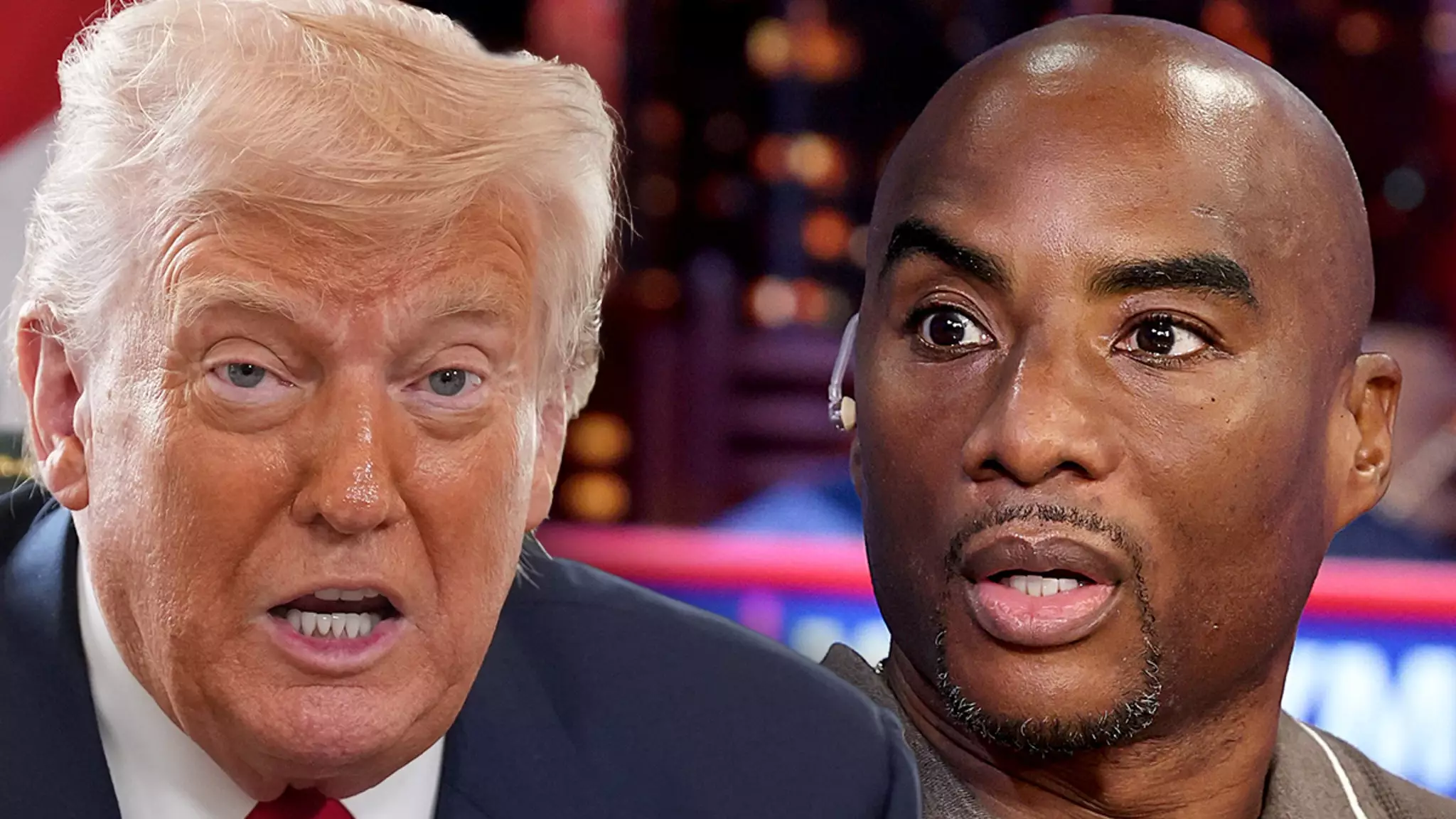In the high-stakes landscape of contemporary politics, public figures often resort to confrontational tactics to shape perceptions and rally their bases. The recent exchange between Donald Trump and Charlamagne tha God exemplifies this phenomenon. What appears as mere personal attack or inflammatory rhetoric actually reveals underlying struggles over narrative control, legitimacy, and influence. Trump’s fiery rebuke, branding Charlamagne as a “racist sleazebag” and an individual of “low IQ,” isn’t merely spontaneous outrage—it echoes his instinct to delegitimize critics swiftly and rhetorically. Conversely, Charlamagne’s provocative comment about a “political coup” over the Epstein scandal underscores how narratives surrounding scandals are weaponized to redefine political power hierarchies, especially within the fracturing Republican Party.
The Power Struggle Within the GOP
The mention of the Epstein scandal becomes pivotal, symbolizing the ideological clash within the Republican Party. On one side are traditional conservatives—characterized by a desire to restore what they see as core values and legal standards—while on the other are populist and charismatic figures who often prioritize loyalty and media spectacle over policy substance. Charlamagne’s assertion hints at a looming reshuffle, where scandals or geopolitical issues serve as catalysts for political realignment. Trump’s response, emphasizing his accomplishments and dismissing critics as “clueless,” reveals his reliance on personal branding and dominant narratives to cement his authority. Ultimately, this skirmish isn’t just about individual insults; it’s about controlling the storytelling that influences millions of voters.
The Power of Persona and Media in Shaping Public Opinion
Trump’s use of social media to attack Charlamagne signals a broader shift in how political figures communicate. Platforms like Truth Social permit direct confrontation, bypassing traditional media filters. This method bears both risks and rewards: it energizes loyal followers but also entrenches division and deepens polarization. Meanwhile, Charlamagne’s appearance on Lara Trump’s Fox News show demonstrates how figures from different sectors—media, celebrity, and politics—are intertwined in crafting leadership images. The spectacle fuels a culture where personal insults often substitute for policy debate, yet it also reflects a deeper truth: personality-driven politics has become paramount in capturing public attention and loyalty.
The Underlying Power Dynamics
Behind this fiery exchange lies a complex web of influence and societal shifts. Trump’s branding as a success story—highlighting economic and foreign policy triumphs—aims to reinforce his status as a resilient leader. Meanwhile, Charlamagne’s critique underscores a broader frustration among ordinary Americans, who seek genuine change beyond the theatrics. The clash reveals a fundamental tension: will politics continue to revolve around personality, or can substantive issues regain their rightful prominence? The answer hinges on which narratives Americans choose to endorse amidst a sea of sensationalism and spectacle. In this web of power, each comment, each insult, serves as a pawn in the ongoing struggle for control over the American story.

